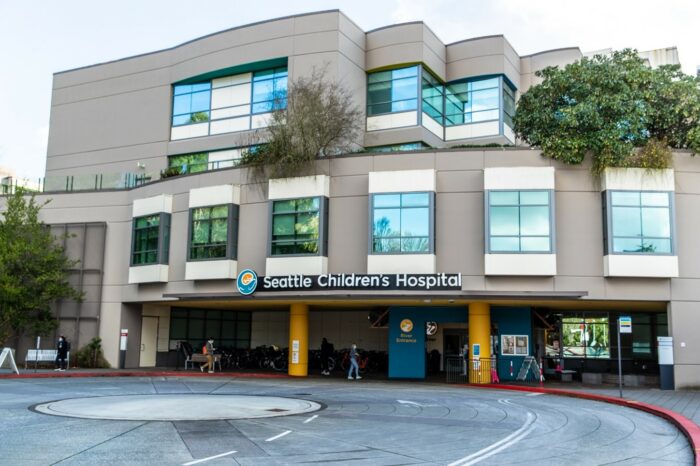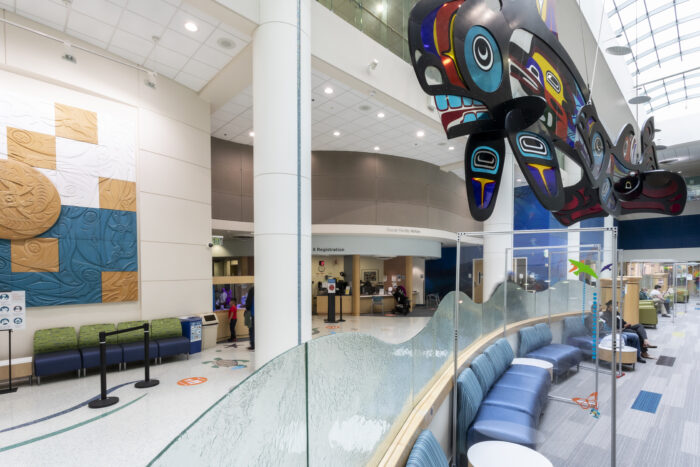Family’s Pursuit of Hope and Better Medical Care Leads Them to Seattle Children’s
8.15.2023 | Guest Contributor
 Seattle Children’s providers are leaders in brain tumor care and research, offering some of the most advanced treatments, neurosurgeries and clinical trials of any children’s hospital.
Seattle Children’s providers are leaders in brain tumor care and research, offering some of the most advanced treatments, neurosurgeries and clinical trials of any children’s hospital.
Its Brain Tumor Program is the largest in the Northwest and one of the largest in the world.
In this edition of On the Pulse, one Seattle Children’s patient shares their personal experience traveling across the world for medical care, navigating language and education barriers, and finding strength in transition.
A 6,000 Mile Journey to Seattle Children’s
My family and I embarked from Iran to Seattle in search of complex medical treatment. Before I was born, my family had lived in Seattle but with the birth of my brother and I, they thought returning to Tehran was critical to raising us with cultural appreciation.
In January of 2001 however, that all changed when I was diagnosed with an optic glioma brain tumor. My parents had to make difficult decisions quickly to ensure I didn’t lose my vision which was something mentioned by my medical team in Iran.
Leaving behind the familiar sights of the local markets and bazaars, sounds of horns blaring in the streets, and the smells of cardamom and saffron within our homeland were bittersweet moments for our family.
With heavy hearts, we bid farewell to our loved ones, as the pursuit of hope and better medical care beckoned us to Seattle in late January of 2001. The decision to uproot our lives was not an easy one, but we knew it was necessary for the well-being of me and my family.
 The Right Care Inside and Outside of the Hospital
The Right Care Inside and Outside of the Hospital
Upon arriving in Seattle, we felt a glimmer of hope. We discovered a medical team at Seattle Children’s who not only understood my condition but also possessed the expertise needed to provide comprehensive care.
I instantly started undergoing chemotherapy and radiation treatment. Every Wednesday, for the better part of 4 years, was spent at the Seattle Children’s main campus hospital.
After my treatment, my family realized that my well-being depended on more than just medical interventions; it required a synchronized effort between my healthcare and educational environments.
My parents understood that open and effective communication with teachers was crucial and formed specialized plans with my school to ensure there was a strong parent-teacher relationship.
My parents would reach out to my teachers to explain the intricacies of my condition, the need for physical therapy during class, frequent exits from the classroom, and limited interaction with peers due to special educational programs.
I also faced the additional hurdle of learning a new language while managing my medical care and specialized education.
Together with the teachers, we collectively organized activities that encourage teamwork and gradual social integration, building confidence in me.
Care beyond treatment at Seattle Children’s
My story at Seattle Children’s didn’t end with my treatment, it was only the beginning for me.
We became frequent visitors to Seattle Children’s for endocrinology appointments and repeat MRIs, a necessary routine to ensure my tumor remained stable.
During those visits, I grew quite familiar with the hospital’s staff, forming unique bonds with some of the incredible individuals who played crucial roles in my life.
 One particular nurse in the MRI suite on Ocean 6 stood out to me. Every time I entered, she affectionately called me “chatterbox,” perhaps due to my excitement and curiosity during those moments.
One particular nurse in the MRI suite on Ocean 6 stood out to me. Every time I entered, she affectionately called me “chatterbox,” perhaps due to my excitement and curiosity during those moments.
Among the hospital’s angels was also Cory, the Cancer and Blood Disorders Center nurse practitioner, who became a second mom to me. Another unforgettable figure was Hector, the famous phlebotomist.
Until I was about 18, Seattle Children’s became my home throughout the years.
Surviving, Thriving and Paving a Path Forward
Seattle Children’s Hospital had given me so much – not just in terms of medical care but also in love, support, and hope.
And so, with a heart full of gratitude, I decided that I wanted to return to the hospital, not as a patient, but as a part of the incredible team of healthcare professionals so I could give back to the patients and their families in the same way that the doctors, nurses, and staff had given to me throughout those challenging years.
Just like my family’s journey from Iran to Seattle was one filled with challenges, it was also full of hope and resilience.
My parents learned the importance of effective communication, collaboration and advocacy for my unique needs. My experience as a patient inspired me to become a beacon of hope and a source of comfort for others facing similar journeys.
Editor’s Note: The patient’s name is not being disclosed at their request.